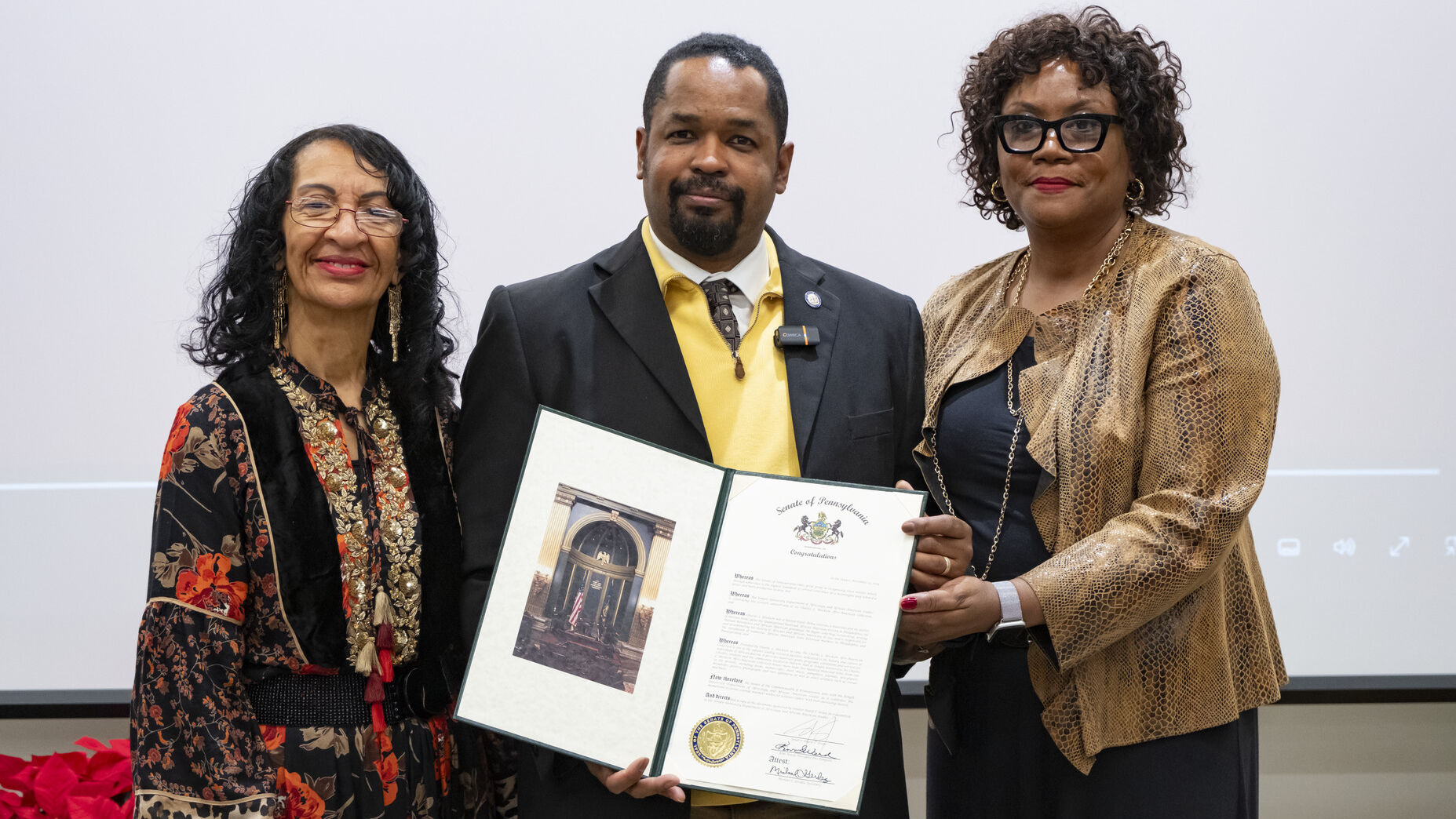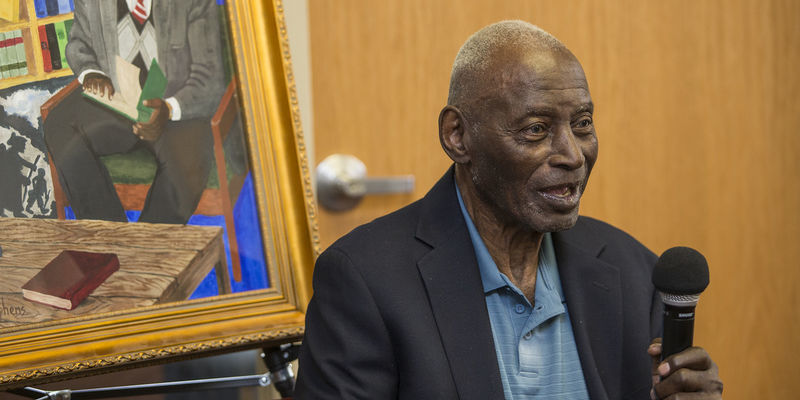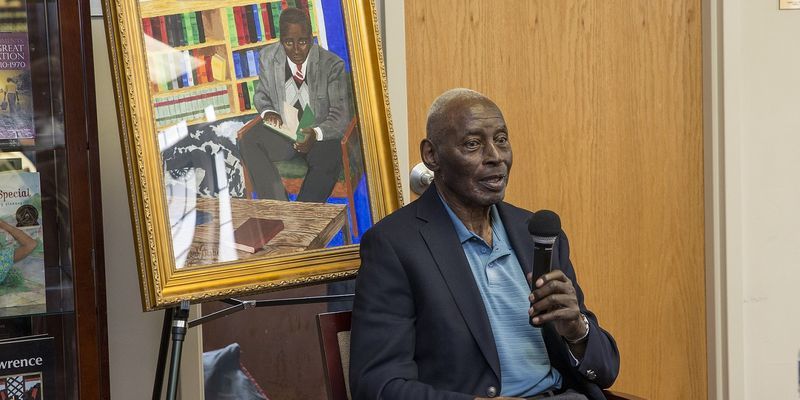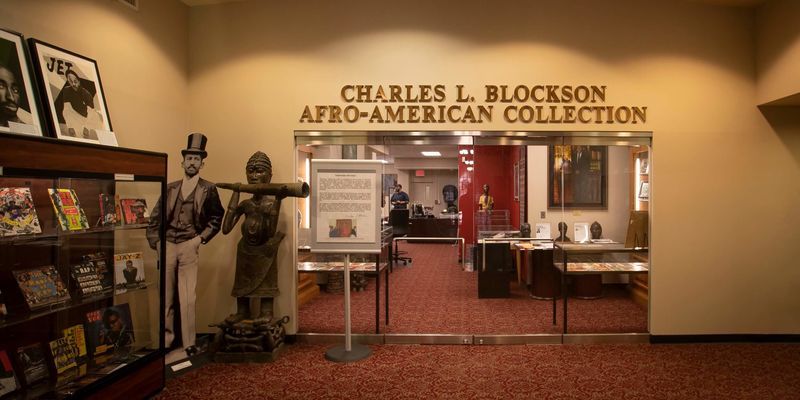The Charles L. Blockson Afro-American Collection celebrates 40 years of preserving African American cultural heritage
Housed within Temple University’s Sullivan Hall, the collection is a leading research facility featuring more than 700,000 artifacts dating back to 1581.

The Charles L. Blockson Afro-American Collection is commemorating 40 years of preserving African and African American history.
Founded by author and historian Charles Blockson, the collection housed at Temple University’s Sullivan Hall encompasses more than 700,000 artifacts from 1581 to the present day.
Temple celebrated the collection’s milestone with a special event on Dec. 11 at the Charles Library. The celebration featured reflections from state Sen. Sharif Street; Jannie Blackwell, chair of the Mayor’s Commission on African and Caribbean Immigrant Affairs; Kenneth Scott, president and CEO of Beech Companies; Oliver St. Clair Franklin, British honorary consul of Philadelphia; Ismael Jimenez, director of the social studies curriculum at the School District of Philadelphia; and Bret Perkins, senior vice president at Comcast Corporation.
The event opened with greetings from Joseph Lucia, dean of Temple University Libraries; Gregory Mandel, Temple provost; and Diane Turner, curator of the Charles L. Blockson Afro-American Collection.
“We’re excited to mark the 40th anniversary. We are enthusiastically committed to continuing Mr. Blockson’s legacy,” Turner said. “Mr. Blockson used to say all the time that it’s not about him. It’s not about any of us. It’s about generations to come who will have access to a record of the global Black experience.”
“As I have said on many occasions, the Temple University family, Philadelphia community and people around the world are indebted to Charles Blockson for his unrelenting pursuit of the Black narrative and all of its historical significance,” said Valerie Harrison, vice president for diversity, equity, inclusion and community impact.
“His legacy will always live on, and we are all better because of that. It is exciting to see the Blockson Collection celebrate 40 years, and I am eager to see the enduring impact that the collection makes over the next 40 years, too,” Harrison continued.
Blockson’s interest in collecting African American materials stemmed from a history lesson with a fourth-grade substitute teacher who asserted that Negros had no history and that they were born to serve white people. The Norristown native began collecting material to prove this teacher wrong, which evolved into a lifelong mission to collect and preserve the history of people of African descent.
Blockson died June 14, 2023, at his home in Gwynedd. His daughter Noelle P. Blockson has fond memories of her father developing his own system for putting the collection’s books on the shelves. “I remember clearly when shelves were being erected in our finished basement, which turned into his own personal library, and watching boxes of books coming into the home,” she said.
As a little girl, Noelle remembered the occasions when pioneering journalists like Trudy Haynes, Malcolm Poindexter and Edie Huggins would visit their home to interview Blockson about his love and passion for Black history.
In 1984, Blockson donated his collection, which then comprised 20,000 items, to Temple. Today the collection boasts more than 700,000 artifacts such as books, sculptures, photographs, sheet music, newspapers, posters and rare ephemera. The trove of cultural heritage includes unusual artifacts such as the John W. Mosley Collection, which documented the social, cultural and political aspects of life in the African American community throughout the 20th century; the letters of William Still, who was an African American abolitionist; first edition works of Phyllis Wheatley; and items from Natalie Hinderas, a classical pianist and composer.
“It has been an incredible honor to watch it augment in recognition and volume over the years,” Noelle said in an interview as she reflected on the collection’s significant growth. “It’s just been a beautiful, full-circle moment to see where it is today. Having people come from around the world to see it is amazing. I’m beyond proud and honored.”
Turner addressed the collection’s impact on Temple students seeking to learn more about the experience of Africans and African Americans. “When they come in here and they research and find out these things, for the African American students, it gives them a sense of pride and for other students it gives them an understanding and appreciation of the Black experience,” Turner stated.


